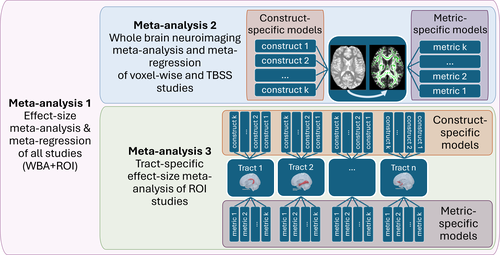
PAPADATOU-PASTOU Marietta
- School of Education, National and Kapodistrian University of Athens & Biomedical Research Foundation Academy of Athens, Athens, Greece
- Life Sciences, Social sciences
- recommender
Recommendation: 1
Reviews: 2
Areas of expertise
Marietta Papadatou-Pastou graduated from the Department of Psychology of the Panteion University, Athens, Greece. She further holds an MSc in Research Methods in Psychology (awarded with distinction) and a DPhil in Neuropsychology (full scholarship), both from the Department of Experimental Psychology, University of Oxford, UK.
In 2014, Dr Papadatou-Pastou joined the faculty of the National and Kapodistrian University of Athens as a Lecturer in “Neuropsychology and Language Functions” and in 2019 she became Assistant Professor. She is also an Affiliated Investigator of the Biomedical Research Foundation of the Academy of Athens. She is a Research Collaborator of the Cognition and Health Research Group affiliated with the Department of Experimental Psychology, University of Oxford, since 2014. Moreover, Dr. Papadatou-Pastou is an Associate Fellow of the British Psychological Society (BPS), a Chartered Psychologist by the BPS, and a Chartered Scientist by the BPS and the Science Council UK. She served as the Secretary General for the Hellenic Psychological Society (HPS; 2017-2019) and she is a co-director of the Neuropsychology Branch of the HPS since 2017.
Dr Papadatou-Pastou’s research interests include various aspects of neuropsychology, as well as cognitive neuroscience and experimental psychology. Her work focuses on handedness and brain lateralization, using behavioral and brain imaging techniques (functional transcranial Doppler ultrasound [fTCD] and functional magnetic resonance imaging [fMRI]), in healthy individuals as well as populations with special education needs (students with dyslexia, hearing impaired students, students with low or high IQ and individuals with autism spectrum disorder). At the moment she is particularly interested in cerebral lateralization of written language, and she has secured a Hellenic Foundation for Research and Innovation (H.F.R.I.) grant to fund this line of inquiry. Dr Papadatou-Pastou is a member of the Consortium on Language Asymmetry (COLA). She has also worked in neuropsychopharmacology, using functional magnetic resonance imaging to investigate the neural and behavioral effects of antidepressant drug action and of mood induction on autobiographical memory. She is further interested in meta-science, with a special focus on meta-analysis. Moreover, Dr Papadatou-Pastou is a member of the Psychological Science Accelerator (PSA), where she has served as an Assistant Director for the Ethics Review Committee. Last but not least, she is interested in science outreach.
Recommendation: 1
05 Mar 2025

STAGE 1

Social cognition as a matter of structural brain connections? A systematic review and diffusion weighted imaging meta-analysis
Social cognition and white matter integrity: Systematic review and diffusion weighted imaging meta-analysis
Recommended by Marietta Papadatou-Pastou based on reviews by Sebastian Ocklenburg and Katie LavigneSocial cognition involves complex processes including empathy, mentalizing, and compassion, which rely on structural connectivity and specifically white matter (WM) integrity. Prior research suggests that deficits in social cognition are linked to deficient structural connectivity, indicating that the latter might be an essential foundation for social cognitive abilities. In the current study, Hansl et al. (2025) explore the relationship between social cognition and white matter (WM) integrity in the brain across different populations, by means of a systematic review and meta-analyses. Using diffusion-weighted imaging data, the authors aim to identify specific WM tracts most associated with social cognition. Meta-analyses of region-of-interest (ROI)-based studies will provide further insights, while meta-regression and subgroup analyses will examine differences across social cognitive constructs, imaging metrics, clinical conditions, and age groups. The findings could clarify global and specific WM contributions to social cognition, guiding future research on brain structure-function relationships in social cognition across various populations.
The Stage 1 submission was evaluated by two expert reviewers. After two rounds of revision, the recommender judged that the manuscript met the Stage 1 criteria and awarded in-principle acceptance (IPA).
URL to the preregistered Stage 1 protocol: https://osf.io/6n3jy (under temporary private embargo)
Level of bias control achieved: Level 2. At least some data/evidence that will be used to answer the research question has been accessed and partially observed by the authors, but the authors certify that they have not yet observed the key variables within the data that will be used to answer the research question and they have taken additional steps to maximise bias control and rigour.
List of eligible PCI RR-friendly journals:
- Brain and Neuroscience Advances
- Cortex
- Imaging Neuroscience
- In&Vertebrates
- NeuroImage: Reports
- Peer Community Journal
- PeerJ
- Royal Society Open Science
References
1. Hansl, R., Maliske, L. Z., Valk, S. L., & Kanske, P. (2025). Social cognition as a matter of structural brain connections? A systematic review and diffusion weighted imaging meta-analysis. In principle acceptance of Version 3 by Peer Community in Registered Reports. https://osf.io/6n3jy
Reviews: 2
Genetically-modified animals as models of neurodevelopmental conditions: a review of systematic review reporting quality
Evidence for mixed quality of systematic reviews in preclinical animal studies of neurodevelopmental conditions
Recommended by Chris Chambers based on reviews by Marietta Papadatou-PastouSingle gene alterations have been estimated to account for nearly half of neurodevelopmental conditions (NDCs), providing a crucial opportunity for animal models to understand the underlying mechanisms, causes and potential treatments. The use of systematic reviews (SRs) can, in principle, provide a powerful means to synthesise this evidence-base; however, the reporting quality of previous SRs in preclinical animal research has been found lacking (Hunniford et al., 2021). In the current study, Wilson et al. (2023) will undertook a review of systematic reviews to assess the characteristics and reporting quality of SRs that, in turn, synthesise research in genetically-modified animals to model NDCs. In particular, the authors extracted key features of reviews (including, among others, the aim and primary research questions, relevant animal model, and number of studies in the SR), in addition to quality indicators such as risk of bias and completeness of reporting. In doing so, the authors aimed to enhance guidance on the conduct and reporting of systematic reviews in this area.
Of twelve publications that met the preregistered search criteria, the completeness and quality of reporting was variable. Among the better reported characteristics were search strategies (9 of 12 articles), reporting of funding sources (10 of 12 articles) and use of animal data (11 of 12 articles). In contrast, only two articles reported whether the study protocol was preregistered, only three articles reported methods for assessing risk of bias, and just one included methods to analyse publication bias. In addition, the authors identified 19 review registrations via PROSPERO, most of which remained unpublished after their anticipated end dates. Overall, the results highlight the importance of adherence to reporting guidelines for increasing the transparency and reproducibility of SRs in this field.
The Stage 2 manuscript was evaluated over one round of in-depth review. Based on detailed responses by the authors, the recommender judged that the manuscript met the Stage 2 criteria and awarded a positive recommendation.
URL to the preregistered Stage 1 protocol: https://osf.io/952qk
URL to the preregistered Stage 1 protocol: https://osf.io/952qk
Level of bias control achieved: Level 4. At least some of the data/evidence that was used to answer the research question already existed prior to IPA and was accessible in principle to the authors, but the authors certify that they did not access any part of that data/evidence prior to IPA.
List of eligible PCI RR-friendly journals:
References
1. Hunniford V. T., Montroy J., Fergusson D. A., Avey M. T., Wever K. E., McCann S. K., Foster M., Fox G., Lafreniere M., Ghaly M., Mannell S., Godwinska K., Gentles A., Selim S., MacNeil J., Sikora L., Sena E. S., Page M. J., Macleod M., Moher D., & Lalu M. M. (2021). Epidemiology and reporting characteristics of preclinical systematic reviews. PLOS Biology, 19:e3001177. https://doi.org/10.1371/journal.pbio.3001177
2. Wilson, E., Currie, G., Macleod, M., Kind, P. & Sena, E. S. (2023). Genetically-modified animals as models of neurodevelopmental conditions: a review of systematic review reporting quality [Stage 2]. Acceptance of Version 3 by Peer Community in Registered Reports. https://osf.io/s5xd4
23 Jan 2023

STAGE 1

Genetically-modified animals as models of neurodevelopmental conditions: an umbrella review
Evaluating the quality of systematic reviews in preclinical animal studies of neurodevelopmental conditions
Recommended by Chris Chambers based on reviews by Marietta Papadatou-Pastou and Richel BilderbeekSingle gene alterations have been estimated to account for nearly half of neurodevelopmental conditions (NDCs), providing a crucial opportunity for animal models to understand the underlying mechanisms, causes and potential treatments. The use of systematic reviews (SRs) can, in principle, provide a powerful means to synthesise this evidence-base; however, the reporting quality of previous SRs in preclinical animal research has been found lacking (Hunniford et al., 2021). In the current study, Wilson et al. (2023) will undertake an umbrella review – a systematic review of systematic reviews – to assess the characteristics and reporting quality of SRs that, in turn, synthesise research in genetically-modified animals to model NDCs. In particular, the authors will extract key features of reviews (including, among others, the aim and primary research questions, relevant animal model, and number of studies in the SR), in addition to quality indicators such as risk of bias and completeness of reporting. In doing so, the authors aim to enhance guidance on the conduct and reporting of systematic reviews in this area.
The Stage 1 manuscript was evaluated over two rounds of in-depth review. Based on detailed responses to the reviewers' comments, the recommender judged that the manuscript met the Stage 1 criteria and therefore awarded in-principle acceptance (IPA).
URL to the preregistered Stage 1 protocol: https://osf.io/952qk
URL to the preregistered Stage 1 protocol: https://osf.io/952qk
Level of bias control achieved: Level 4. At least some of the data/evidence that will be used to answer the research question already exists AND is accessible in principle to the authors BUT the authors certify that they have not yet accessed any part of that data/evidence.
List of eligible PCI RR-friendly journals:
- Brain and Neuroscience Advances
- F1000Research
- Human Population Genetics and Genomics
- In&Vertebrates
- Journal for Reproducibility in Neuroscience
- Peer Community Journal
- PeerJ
- Royal Society Open Science
References
1. Hunniford V. T., Montroy J., Fergusson D. A., Avey M. T., Wever K. E., McCann S. K., Foster M., Fox G., Lafreniere M., Ghaly M., Mannell S., Godwinska K., Gentles A., Selim S., MacNeil J., Sikora L., Sena E. S., Page M. J., Macleod M., Moher D., & Lalu M. M. (2021). Epidemiology and reporting characteristics of preclinical systematic reviews. PLOS Biology, 19:e3001177. https://doi.org/10.1371/journal.pbio.3001177
2. Wilson, E., Currie, G., Macleod, M., Kind, P. & Sena, E. S. (2023). Genetically-modified animals as models of neurodevelopmental conditions: an umbrella review, in principle acceptance of Version 3 by Peer Community in Registered Reports. https://osf.io/952qk